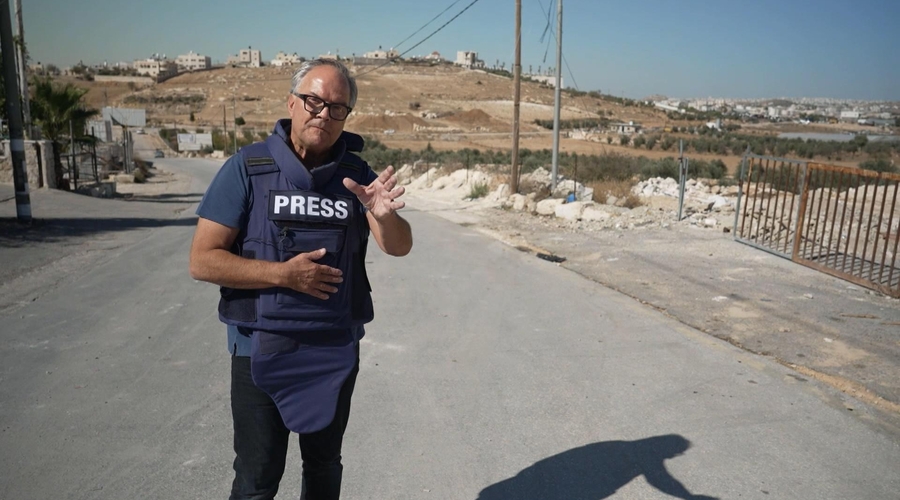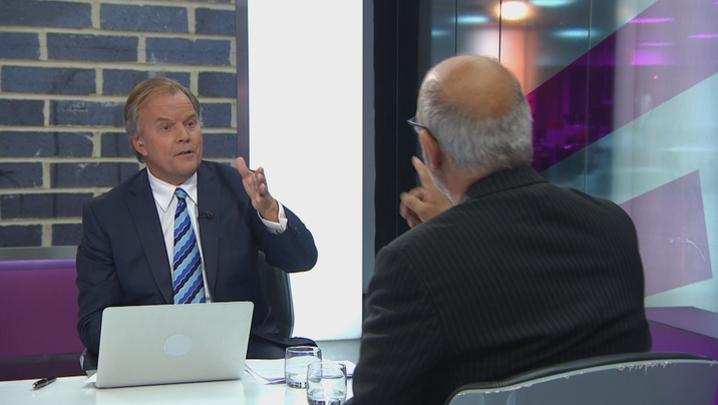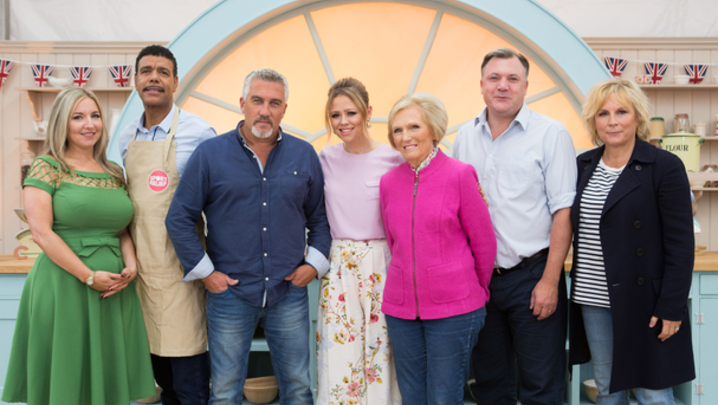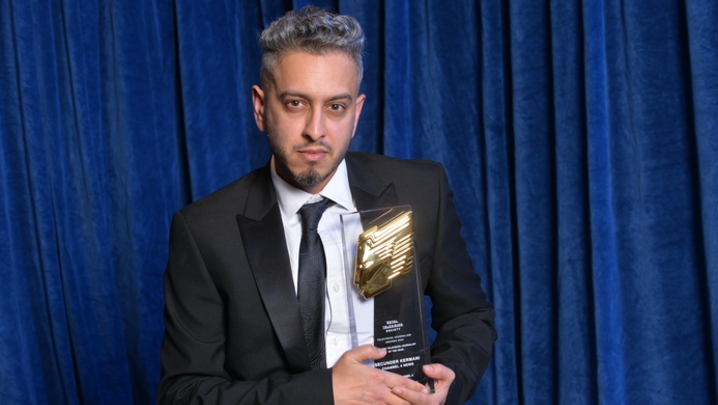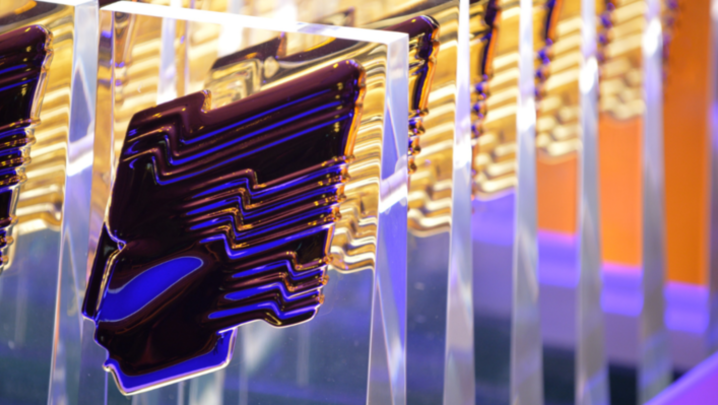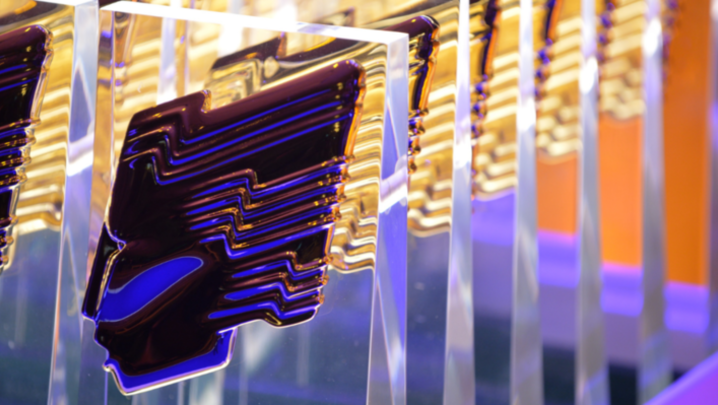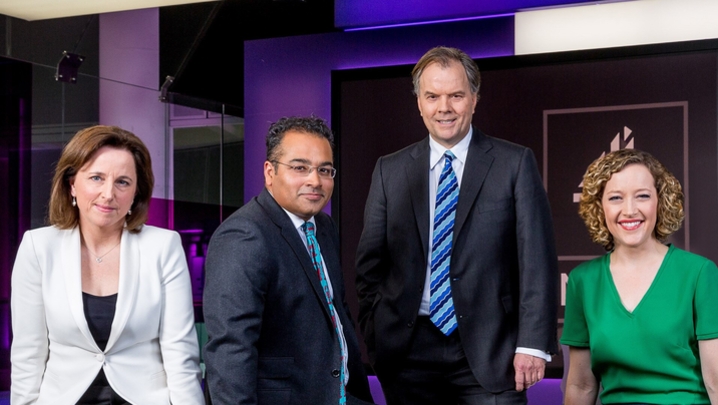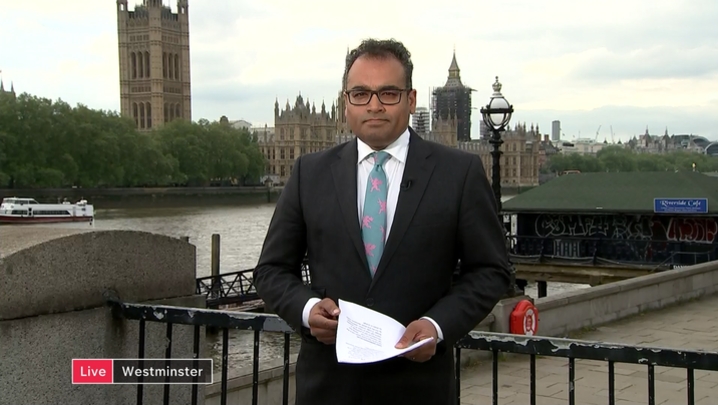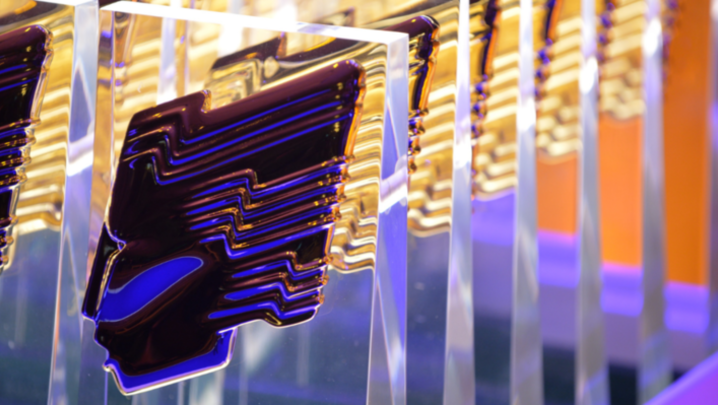Matt Frei’s career as a foreign correspondent spans over 30 years and too many countries to count, seven of which he has called home, but there’s one which he found particularly easy to cover.
As the BBC's Washington, DC correspondent from 2002, and Channel 4 News’s from 2011-2013, Frei lived in America for 11 years, and there, he says, the people make the job “incredibly easy,” simply because “everyone wants to talk to you.”
“They love being on camera, they deliver beautiful sound bites. They’re very articulate—despite the fact that their presidents are often known for the opposite.”
It appears the country may have rubbed off on him. There’s a streak of showmanship about Frei, and he’s certainly given to a soundbite or three.
Zooming in from Putney between postings for Channel 4, he contrasts the joy of covering America’s “very broad panorama, both linguistically and in terms of ideas,” to the UK. “Here, at the moment, you’re stuck in a slightly toxic Tupperware box with eternally grey weather, and where everyone is at each other’s throats.”
Not that the political climate’s all sunshine and rainbows in the US. As much as Frei romanticises the open road, he recognises that “space, of which there is a lot, is both its greatest blessing and its greatest curse. Blessing because it allows you to think beyond the horizon, it gives you a sense of opportunity, hope and perspective. And curse because if you don’t like someone else’s opinion, you can just move to the town next door, the middle of the desert or the other side of the mountain.
“You’ll always find somewhere to live with a community of likeminded people. And then without human contact with the other side, you can just fortify the walls of your own opinion and prejudice.”
Speaking of walls: Frei, who now serves as Channel 4’s Europe Editor and Presenter, returned to America in 2023 to cover the indictments of a former President who’s become synonymous with them. The two have a history: back in 2013, Frei traded blows with Donald Trump in Trump Tower amid rumours of his first candidacy. In a typically playful turn of phrase, Frei accused Trump of “bikini diplomacy” when he hinted at leveraging his Miss Universe pageant in Moscow to persuade Vladimir Putin to return Edward Snowden (who was then granted asylum in Russia) to the States.
When we speak, New York Attorney General Letitia James had just ordered Trump to pay $454.2 million for civil fraud, and banned him from business in the state for three years. It’s just one of a number of court cases facing the former President, which Frei says will definitely influence the upcoming election, “but not in a way that many people had hoped.”
“Every time he's indicted, his popularity goes up, but only with a certain group of people. So, using his favourite image of the wall: he is building a wall of support, but that wall is not getting any higher, it's just getting a lot thicker.”
Meanwhile, the stakes, in Frei’s eyes, couldn’t be any higher. “It’s a toss up,” he says, of which the outcome will be determined by independent voters. And given Trump’s track record, and his alleged plans for centralisation, “what’s really on the ballot is: does America have a democracy at the end of all this?”
It’s this threat to democracy that Frei will explore in his next Channel 4 documentary: a hypothetical look at the first 100 days of a second Trump presidency.
But many a regretful think piece has been written about the disproportionate media attention the Republican controversy-magnet received, from the very start of his campaign and beyond. Is Frei not wary of paying him too much attention? “It’s a good point, we [journalists] did give him a lot more attention than we gave Hillary Clinton or Joe Biden, and I think part of that is the grotesque law of Donald Trump. But I also think you need to give him the attention because this is someone who wants to change the rules of the game completely.”
2023 also saw Frei make another return, this time to Israel following the October 7th massacre. Altogether he was on-air for 32 days straight, both covering the impact of the war on the ground and pressing the politicians responsible. It sounds like a lot of work, but Frei says that this is the value of Channel 4 News and its all-encompassing job descriptions. “If you can say to a prime minister, ‘I’ve just been there, and I’ve spoken to so and so, and this is what I’ve heard, what’s your response?’, it gives you so much more authority.”
10 days into that 32 and you could hear the tiredness creeping into Frei’s voice as he hoarsely accosted Rishi Sunak in the King David Hotel Lobby, asking the Prime Minister for details of his meeting with the Israeli government. Such a marathon broadcasting run would pay off, though, contributing to Channel 4’s Network Daily News Programme of the Year award, whose jurors specifically praised its coverage of the conflict.
Downplaying the length of his stay, Frei says the major challenge in the reporting actually lay elsewhere, in the fact that “both sides believe very strongly that they're in the right.”
His capacity to contextualise the current conflict (and most of the stories we discuss, for that matter) stems from his now over thirty year career in broadcast journalism, during which time he has continually covered Israel-Palestine relations. His first posting to the region was back in 1989, when he spent almost a year working as a stringer for the BBC on the First Intifada (1987-1993). “That was basically sticks and stones and Molotov cocktails, and rubber bullets in response. Compared to the Second Intifada [2000-2005] which was bus bombs and helicopter gunships. Every time there’s a war, it gets worse.”
He wistfully recalls hiking through the wadis (dry riverbeds) of the Judean desert and down to the Dead Sea, as well as visiting the Church of the Nativity in Bethlehem, “without having to go through a massive wall that makes the Berlin Wall look like a garden fence.”
“Toxic Tupperware boxes”; “bikini diplomacy”; “garden fences”: talking to Frei you get a taster for the unusual colour in his coverage. But when I put it to him that his scripts stand out for their imagery, the German-born Frei is British enough to deflect the compliment. He explains that English is his second language, so he can perhaps “play with it more than others, because my grammar’s shite.”
His start in radio taught him to write, he says, “because you're painting pictures with words.” But the transition to TV, where pictures are provided by the camera, taught him “to take the words away.”
He's aware that it sounds pretentious, but he also takes his cue from poetry, given the relatively short lines you write to syncopate the pictures.
Also: “poetry takes you to places that prose can’t, it’s impressionistic. That’s sort of what you’re trying to do with a television script: you don’t want to have too many facts, graphs and numbers, because people’s eyes glaze over. But you’re always hinting at bigger thoughts that aren’t necessarily articulated by the pictures themselves.”
“It's one of the most important forms of writing,” he says, “and one of the least appreciated by other writers. Because it's an act of omission; less is more.”
As a programme, though, Channel 4 News has long prided itself on providing more: more detail and explanation, which Frei believes now aligns with the way the population prefers to consume their information. He points to the rise of podcasts, on which people talk at length and in depth about the issues they care about.
“The headlines and summaries you can get on your phone, the nuts and bolts of the news. And a lot of what television news does is not that much different. But if we want people to sit down at seven o’clock and watch 55 minutes of news, you’ve got to offer them something different. It’s got to be a show with a kind of narrative arc and some interviews and a bit of light in the shade.”
And here he hits me with one last Frei-ism: “it’s not all serious porridge, you might get the occasional glacé cherry as well.”

